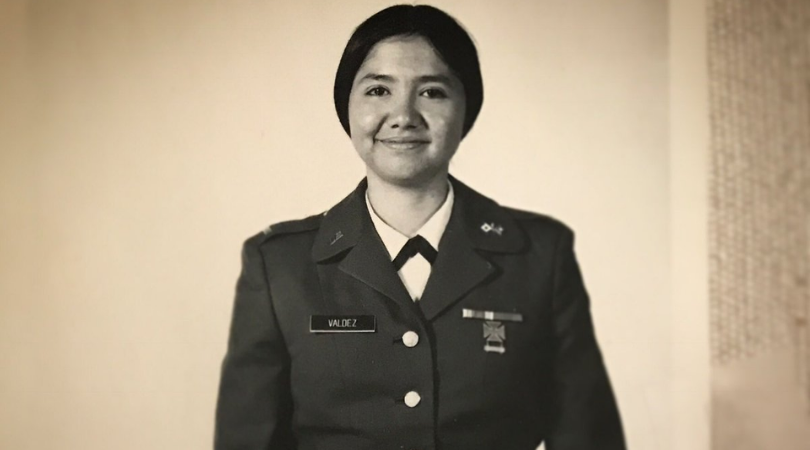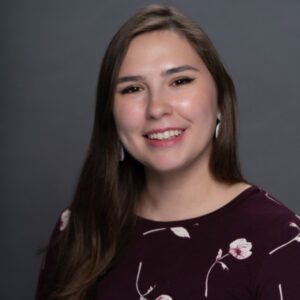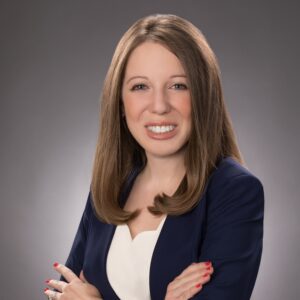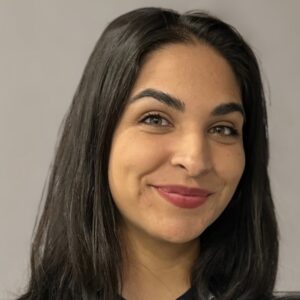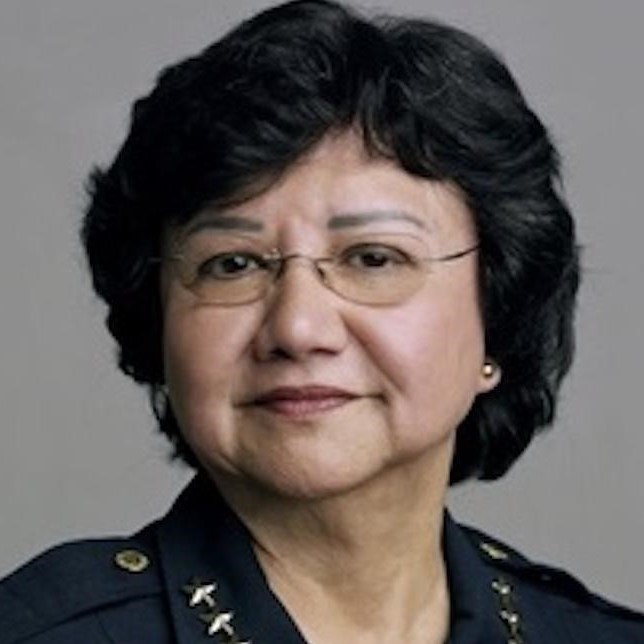
Before Lupe Valdez made history as the Democratic nominee in the 2018 Texas Gubernatorial Election, her life was characterized by public service and a knowledge of the hardships faced by Texas minorities. As a young girl and the daughter of migrant workers living in the poorest zip code in San Antonio, Valdez was given the opportunity to attend a better school in the wealthier part of the city. She bussed herself every morning and it was then she first recognized the gross inequity among the communities in San Antonio. She remembers rainy days as the most obvious indicator that she didn’t enjoy the same privilege as her classmates. When it rained, Valdez would get to school and have to clean her shoes, unlike her mostly Caucasian classmates. She realized that she was the only student with muddy shoes because her neighborhood did not have paved sidewalks. After high school, she attended college in Oklahoma and commissioned in the United States Army after getting her bachelor’s degree.
Once her military career ended, she entered law enforcement. Valdez recalls going to the unemployment office as a new veteran and receiving the only job that was available: a federal corrections officer in Kansas City. From there, she began working as an agent for various federal agencies and, along the way, moved back to Texas to be closer to her family. She initially did not want to return to Texas, a state that had been so prejudiced to her even in her youth. Going back as a Hispanic lesbian felt like a daunting move. She decided on Dallas because it was “almost not Texas,” and a job was available there for her. After settling in to her new city, Valdez made several friends, including one who decided to run for school board. Politics never played a huge roll in Valdez’s life – she remembers President John F. Kennedy being shot – but she had little exposure to government growing up. Regardless, she volunteered on her friend’s campaign and continued to be involved in Dallas politics.
Before the 2004 election, Valdez was working as an agent for the Department of Homeland Security and was considering retiring, but she didn’t want that to be the end of her public service. She went to the local Democratic Party office and expressed an interest in running for Justice of the Peace. The party official countered with an offer to support her campaign for Sheriff. After contemplating the decision at a silent retreat, Valdez retired from DHS and launched her campaign for Dallas County Sheriff, with the contingency that she would have the support she needed to actually make a difference. She lost 30 pounds as a result of rigorous campaigning, but luckily, that’s the only thing she lost. Valdez was the first Democrat to win the seat in nearly 20 years. She was also the first woman, first openly-lesbian, and first Hispanic person to hold the position. In 2018, Valdez announced her candidacy for Governor of Texas. Following a victory in the runoff, she became the first Hispanic and first openly-gay candidate to receive the gubernatorial nomination by either major party.
Valdez does not sugarcoat life on the campaign trail. Knocking on doors and driving across the state every single day, especially operating on a fraction of her opponent’s funding, was exhausting. She was not offered a plane like so many of the men who vied for the seat before her. She was not given blank checks by Super PACs like her opponent. She worked day and night to earn every single vote that she got. Though she ended up losing the campaign, she doesn’t have any regrets and doesn’t think her campaigning days are over. A public servant at heart, Valdez continues to work for initiatives that she believes in.
Three of her passions are affordable housing, economic opportunity, and access to healthy, affordable food. After being discharged from the military, Valdez used a V.A. loan to buy land in Ellis County. She plans to build apartment buildings around on this land and create a community garden in the center where tenants can all grow healthy, organic food at a low cost. Valdez mentions that while the blueprints have been drawn, this project will not happen overnight. In the meantime, she plans to fight for other issues she believes in, like affordable healthcare, economic equity, and prison programs designed to reduce recidivism and promote self-sustainability.
When asked what advice she would give to young women aspiring to run for political office, she tells a story from her Sheriff campaign. It was 2004 and being LGBTQ in Texas was extremely stigmatized. After her opponent outed her in a press conference, her campaign team urged her to share something unsavory about the opponent’s background to shift focus away from her sexuality. A long night of arguing led to Valdez telling her team that women don’t work that way. One of her staffers replied, “That’s why women don’t win.” Despite this contention, the campaign found a way to stay true to Valdez’s identity without compromising her values, and the rest is history. She sums it up with a single thought: “You can’t win being someone else.”
